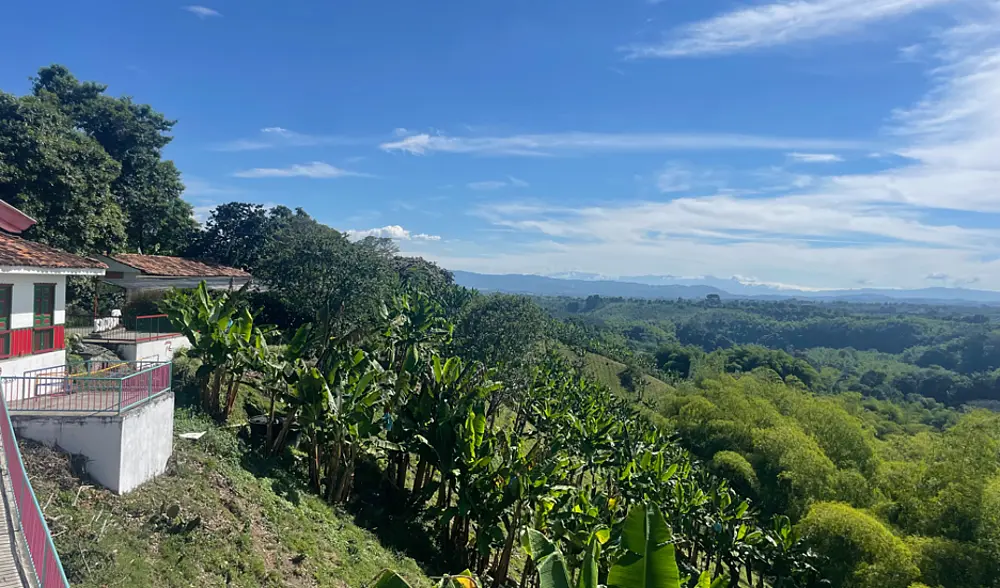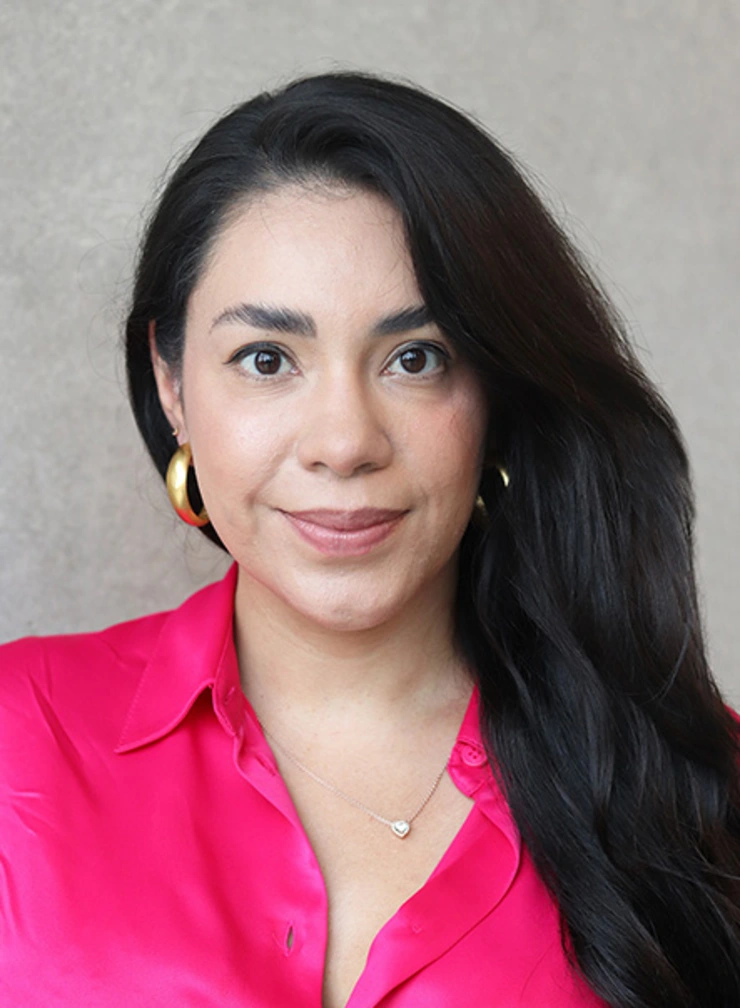Bridging Research and Practice: My Journey into Colombia’s Security Sector

For more than ten years, I have been driven by a question that follows me everywhere—from classrooms to field sites, from long interviews to long flights with my baby in my arms:
Why doesn’t institutional reform translate into real behavioral change within the security sector?
I began this journey studying soldiers in the aftermath of the 2016 peace agreement with the FARC-EP. On paper, Colombia transformed—new laws, new training, new protocols, and a national commitment to peace. Yet on the ground, I kept seeing the same tension: structural reforms rarely shift the perceptions, values, and everyday decision-making of those who wear a uniform.
Over time, that “research obsession,” as I affectionately call it, expanded from the Colombian Military to include the Colombian National Police. I realized that even when institutions modernize, the internal worlds of officers do not change overnight. Training, equipment, new curricula, or peace agreements do not guarantee that every civilian will be treated with dignity, equality, and protection.
And this is not just a Colombian story. Across Liberia, Burundi, Somalia, Afghanistan, and beyond, I found the same pattern: a persistent gap between institutional transformation and behavioral transformation. That gap is where my research lives.
Finding Answers in Sociopsychology
In 2023, I traveled to Madrid to visit Professor Ángel Gómez, whom I knew from my PhD years. In his lab, they work with a concept that I incorporate into my research because it resonates with my puzzle: identity fusion—the deep sense of oneness with a group that motivates individuals to make costly sacrifices. This concept always struck me: what if we could understand how these psychological mechanisms operate inside police and military institutions? What if they help explain why some officers protect civilians even under pressure, while others reproduce patterns of discrimination, suspicion, or violence? Soon after, I joined the MULTIPREV ERC project, bringing what I consider a critical yet often overlooked perspective: the security sector. Scholarship on violence frequently prioritizes non-state armed groups, leaving significant blind spots in our understanding of how state actors—police and soldiers—navigate identity, threat, and moral decision-making. This project includes more than 40 countries and different armed groups; my role is to bring state armed actors such as police officers who must make sacrifices not for war, but for peace.
If you would like to learn more about this collaboration and its fieldwork in Colombia, you can explore the project updates here:
Fieldwork with the University of Erfurt team – click here:
https://www.uni-erfurt.de/en/brandtschool/media-events/media/news/newsdetail/praevention-von-radikalisierung-und-gewalt-feldforschung-in-kolumbienIdentity fusion and sacrifice in the Colombian Police (UNED) – click here:
https://www.uned.es/universidad/inicio/en/noticias/mostrarnoticia.html?noticia=la-uned-estudia-como-la-fusion-de-identidad-refuerza-el-sacrificio-y-el-bienestar-dentro-de-la-policia-colombiana
Fieldwork, Motherhood, and the Hidden Labor of Research
In March 2024, six months pregnant, I returned to Colombia to begin fieldwork at the Escuela de Suboficiales “Gonzalo Jiménez de Quesada.” A year later, I returned again—this time with my baby—to strengthen collaboration with police academies, refine an experimental survey, and prepare for data collection in 2026.
Traveling for fieldwork while pregnant, and later as a mother, reshaped how I think about research.
Carrying a child while carrying out interviews and negotiations felt symbolic: both journeys demand patience, resilience, and care. Both require long-term commitment and trust. Both push you to think about the kind of world you are trying to help shape.
People often see the final article, the dataset, or the polished theory. What they don’t see are the months and years of navigating bureaucracies, waiting for institutional access, listening carefully to officers' concerns, or building relationships in spaces not always welcoming to young women researchers.
But these invisible efforts—emotional, logistical, intellectual—are what make research meaningful.
Working with security institutions is challenging even in stable democracies. In Colombia, the challenge grows exponentially. Access is built one conversation at a time, often over years, with officers who must trust that your goal is to strengthen—not expose—their institution. As a civilian woman, and later as a mother with a baby on my hip, I learned that trust can sometimes open doors that credentials alone cannot.
Understanding the Human Side of Institutional Change
In 2024, the Folke Bernadotte Academy selected me as a country expert and awarded a research grant—co-led with my colleague Dr. Lucía Tiscornia—titled “Socio-Psychological Drivers of Security Sector Violence.” With this project, we explore a simple but powerful question:
How do threat perceptions, identity-based grievances, and emotional responses shape police officers’ willingness to protect civilians?
Using fieldwork, interviews, and experimental methods, we examine how war legacies live on inside state institutions—long after formal conflict ends. Our goal is to support better Security Sector Reform (SSR) practices by integrating a socio-psychological understanding of officers’ motivations, fears, and moral boundaries.
Evaluating Police Reform from Within
I also lead REFORCE: Reform and Evaluation of the Colombian Police, a project designed to evaluate Colombia’s police reform using empirical evidence rather than assumptions. Through partnerships with Colombian Police Academies, we are creating evaluation tools that measure how officers internalize human rights, use-of-force protocols, and community-engagement standards. The goal is not to measure whether reforms are implemented—but whether they transform behavior.
Why This Research Matters to Democracy
Across the world, public trust in democratic institutions is eroding. Police–civilian encounters—one of the most immediate expressions of state power—shape whether people feel protected or threatened, respected or marginalized. Uneven protection, discriminatory enforcement, or the criminalization of dissent weaken democracy from the inside out. This is not only a Latin American phenomenon. Even consolidated democracies are increasingly adopting internal-enemy framings and securitized approaches to policing. My research seeks to understand the human mechanisms behind these trends. I believe that to strengthen policing in democratic societies, we must look beyond structures and rules. We must understand the perceptions, emotions, and moral worlds of those who represent the state every day.
The Purpose Behind My Work
When I look back at the last decade—traveling across Colombia’s regions, interviewing police officers and soldiers, learning from communities, joining international research teams, doing fieldwork while pregnant and later carrying my baby through airports—I see a larger purpose unfolding. I want to contribute to a vision of democratic security where protection is not conditional, where police officers feel supported rather than threatened by reform, and where every civilian is treated as deserving of safety and care.
Research can help us get there—slowly, imperfectly, and always in dialogue with the real world.
This is why I continue building bridges between academia and practice, between security institutions and communities, between Colombia and the international research community.
And it is why I remain committed to studying the most difficult question of all:
How do we reshape the human side of institutions created to protect us, but which, more often than we care to admit, end up wielded as tools of violence and coercion?
About the Author

Alejandra Ortiz-Ayala, PhD is Research Associate and Head of the Conflict and Conflict Management specialization at the Willy Brandt School of Public Policy, University of Erfurt. Before coming to the Willy Brandt School, she was a Research Assistant Fellow on a participatory action research project with refugee-background young people in southern New Zealand at the School of Education of the University of Otago.